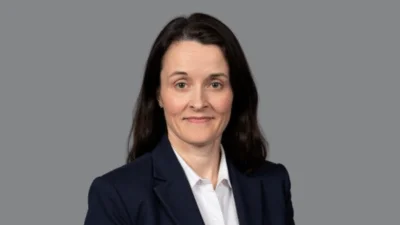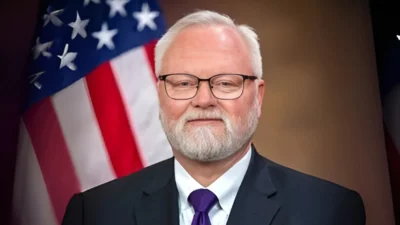The Congressional Record is a unique source of public documentation. It started in 1873, documenting nearly all the major and minor policies being discussed and debated.
“Filibuster (Executive Session)” mentioning Ben Sasse was published in the Senate section on pages S1629-S1630 on March 18.
Of the 100 senators in 117th Congress, 24 percent were women, and 76 percent were men, according to the Biographical Directory of the United States Congress.
Senators' salaries are historically higher than the median US income.
The publication is reproduced in full below:
Filibuster
Mr. DURBIN. Mr. President, earlier today, my friend from South Dakota, the Republican Senator John Thune, came to the floor and discussed the filibuster. It has been a topic of discussion not only this week but even before. I hope that Senator Thune will concede that whether you are for the filibuster or against the filibuster, we should certainly be dedicated to the proposition that the U.S. Senate should be a deliberative body that actually considers amendments and legislation on the floor.
Now, what I just said sounds very routine and normal. It is radical when you look at the record of the U.S. Senate. Last year, under the Republican leadership of Senator McConnell, we had 29 amendments on the floor the entire year--29. That was really an improvement over the previous year, 30 percent better than the previous year--22 amendments. What that says to those who may not be familiar with Senate procedure is that the floor is empty and no one is here because we aren't taking up legislation. Why?
So far this year, we have done three things in the Senate: the impeachment trial; the reconciliation bill, the American Rescue Plan by President Biden; and nominations. What do those three things have in common? None of them, not one of them can be stopped by a filibuster. Why aren't we taking up other legislation? Because looming over us is a supermajority requirement of 60 votes to get anything done.
What I have said to my friends on the Republican side of the aisle is, show me that we can make the Senate function. If we can show that with the filibuster, so be it. If we can show it by changing the filibuster, so be it. But let's do something.
We were elected to do things. We were elected to pass an infrastructure bill for America. It has been years since we have done that. We were elected to deal with issues that are fundamental to this country. What about all the student loan debt in this country? Are we going to do anything about it, say anything about it? Nothing is coming to the floor, is it? There are so many issues that we should be taking up that we are not taking up because of the looming specter of the filibuster. That is a reality.
Let me bring that reality close to home. Twenty years ago, I introduced the DREAM Act. I said if you were brought to America as an infant, toddler, child, young person--your family brought you here, you grew up here, you went to school here, and you pledged allegiance to that flag in your classroom every single day--at some point in your life, you ought to have the opportunity to earn your way to be a legal person in America, a citizen in America. I don't think that is a radical idea. In fact, the overwhelming majority of Americans support the idea.
So, Durbin, let me ask you a question. It has been 20 years. You are supposed to be a legislator. Why haven't you passed this, something that simple and that direct? I haven't made it a law of the land because of one thing: the filibuster. The filibuster. Five times I have brought this measure to the floor of the U.S. Senate and have been stopped by the filibuster; a majority vote every time but never the magic 60, the magic supermajority.
So do I have a problem with the filibuster? Yes, I do. I challenge those who are defending it to show me it can work, to show me we can create bipartisan votes on the floor, actually debate on the floor, amendments on the floor, legislation on the floor. That is not too much to ask. I think that is why we were elected.
I come today to address this issue because the House is expected to vote on the Dream and Promise Act and Farm Workforce Modernization Act. If the Senate is able to join the House in passing these bills, we would be able to make significant immigration legislation progress.
But I want to add that I support comprehensive immigration reform. I believe it is the only honest answer to what we face in America today. I will do my best to do everything I can. There is no excuse for inaction. This broken immigration system needs to be addressed on a bipartisan basis, and an answer is long overdue for Dreamers in this country. I have told you who they are.
When President Obama created DACA for them, some 800,000 came forward, registered with the government, and received legal status to work and freedom from fear of deportation because of DACA.
President Trump eliminated the program. The battle ensued in court. The Supreme Court said that Trump did it wrong, and we are now in the middle ground.
President Biden supports DACA. He has made it clear that it is open for new people to apply. Yet we don't have the final law.
We are dealing with Executive orders when it comes to this important issue. That is why I have decided to come to this floor and to continue to raise the issues of the people who are involved and to introduce my 129th Dreamer story on the floor of the U.S. Senate, which I have done for years.
Diana Andino. She was born in Ecuador. She came to the United States when she was 11 years old. She grew up in Houston, TX. She was quite a student. She graduated in the top 10 percent of her high school class and went on to earn a bachelor's degree with honors from the University of Houston, in biology with a minor in chemistry.
She wrote me a letter, and here is what she said about her dream of becoming a physician:
I found my calling in medicine after volunteering at a local county hospital while I was in college.
Here is what she said about the difference that DACA made in her life:
I graduated from college in 2011, and my dream of becoming a physician was truncated by my lack of citizenship status. However, DACA came in place a year later. I was able to apply to school and was accepted at the Loyola University Stritch School of Medicine in Chicago.
Let me just say, hats off to Loyola and their medical school. They have led the Nation in accepting wonderful students just like Diana. They were the first in the Nation to accept DACA applicants. More than 30 have since attended their medical school, and many of them are practicing in underserved areas.
Diana graduated from Loyola Medical School and now is a third-year resident at Loyola University Medical Center. She treats COVID-19 patients with serious complications, such as stroke or major bleeding.
Here is what she said about the COVID-19 pandemic:
It's been a challenging year not only physically but mentally. Patients with COVID-19 developed multiple neurological complications that we have encountered and continue to learn about. As a neurology resident, I've learned to be flexible as there are so many unknowns we encountered almost daily.
How many times have we said in the last year: Thank God for people just like this woman, who risks her life as a doctor for COVID-19 patients. Our brothers and sisters, our family members, people whom we love are kept alive because Diana is skilled enough and brave enough to go into their rooms and try to save their lives.
We think so much of Diana that we have to debate in the Senate whether she should be a citizen of the United States. There is no debate, as far as I am concerned. She is exactly the kind of person we need in America's future. Send her back to Ecuador? No. Let her stay in her home country of America.
Make the Dream Act a reality. Make it the law of the land. Don't let a filibuster stop it again. When we receive the Dream and Promise Act from the House of Representatives, we will have an opportunity to see if 10 Republican Senators can join us in an effort to finally pass it--
I hope more.
As I said at the outset, I support comprehensive immigration reform. I want to try to sit down and have a conversation about the farm labor bill, about those who are here in temporary protected status, about essential workers like Diana who ought to be given a chance to become citizens in this country. That is what the debate is all about.
This empty floor, with no conversation among Senators, is testimony to the fact that this is an aspiration--an aspiration that we can overcome the filibuster, pass the Dream Act and more and do it soon. Lives depend on it. Futures depend on it. The dreams of America are at stake.
I yield the floor.
I suggest the absence of a quorum.
The PRESIDING OFFICER. The clerk will call the roll.
The bill clerk proceeded to call the roll.
Mr. SASSE. I ask unanimous consent that the order for the quorum call be rescinded.
The PRESIDING OFFICER. Without objection, it is so ordered.
The Senator from Nebraska.
Mr. SASSE. I ask unanimous consent for the Record to note that the junior Senator from New Jersey is very dramatic in the Chair.
The PRESIDING OFFICER. Absolutely, without objection.
Actually, I note one objection from the junior Senator from New Jersey.
Mr. SASSE. I ask unanimous consent to begin the vote now.
The PRESIDING OFFICER. I am sorry I might have seen an objection from the Senator.
No, there is no objection.
Without objection, it is so ordered.


 Alerts Sign-up
Alerts Sign-up